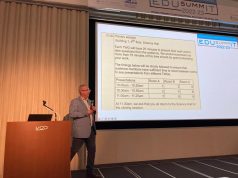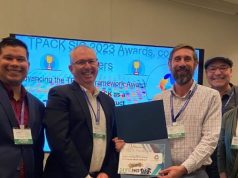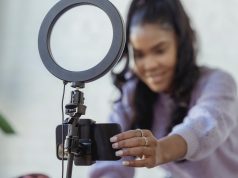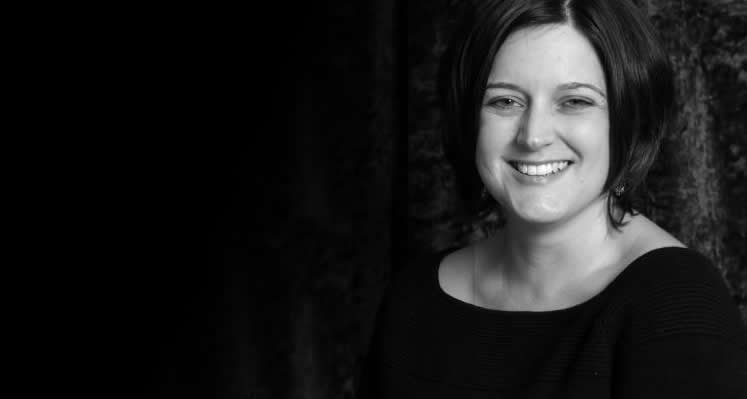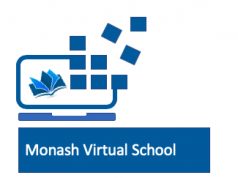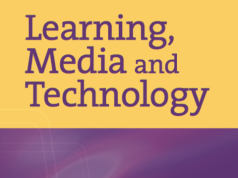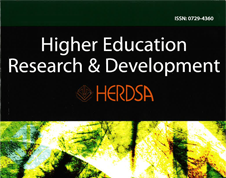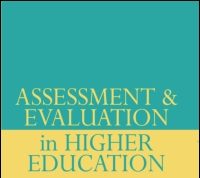 Michael Phillips is the Associate Professor of Digital Transformation in the Faculty of Education, Monash University. His work focuses on the knowledge expert teachers develop when integrating educational technologies into their practice. Additionally, Michael researchers the ways in which expert teachers make active decisions about their classroom technology integration. Michael’s research regularly involves collaboration with colleagues from Australia, the United States, Europe, Asia and the sub-continent. In 2019, Mike lead an international team from 11 countries exploring teacher decision making in technology rich contexts as pat of the UNESCO EDUsummIT.
Michael Phillips is the Associate Professor of Digital Transformation in the Faculty of Education, Monash University. His work focuses on the knowledge expert teachers develop when integrating educational technologies into their practice. Additionally, Michael researchers the ways in which expert teachers make active decisions about their classroom technology integration. Michael’s research regularly involves collaboration with colleagues from Australia, the United States, Europe, Asia and the sub-continent. In 2019, Mike lead an international team from 11 countries exploring teacher decision making in technology rich contexts as pat of the UNESCO EDUsummIT.
These projects have resulted in a range of books, book chapters, peer reviewed journal articles and conference presentations including a Highly Commended Paper Award from the Australian Council for Computers in Education (ACCE) and the Best Paper Award at the Society for Information Technology and Teacher Education (SITE) conference in 2016 and again in 2019. Michael has also received the Dean’s Award for Excellence in Teaching and Learning (2015), the Vice-Chancellor’s Award for Programs that Enhance Learning (2016), the Monash Postgraduate Association Lecturer of the Year Award (2016) and the Dean’s Award for Outstanding Research by an Early Career Researcher (2017).
Prior to joining Monash University in 2013 Michael was a senior teacher for 15 years in secondary schools. He is also an Associate Editor for the Australasian Journal of Technology in Education and his work enhancing the professional learning of ICT teachers in Victoria was recognised in December 2013 with an Outstanding Professional Service Award from the Council of Professional Teaching Associations of Victoria
Books:
Phillips, M. (2016) Digital technology, schools and teachers’ workplace learning: Policy, practice and identity. London: Palgrave Macmillan
Fisser, P., & Phillips, M. (Eds.) (2020). Learners and Learning Contexts: New Alignments for the Digital Age. (1st ed.) International Summit on ICT in Education. https://edusummit2019.fse.ulaval.ca/files/edusummit2019_ebook.pdf
Thesis:
Phillips, M. (2014). Teachers’ TPACK enactment in a Community of Practice, Monash University, Melbourne. eThesis: http://arrow.monash.edu.au/1959.1/981787
Peer-Reviewed Journal Papers:
Scull, J., Phillips, M., Sharma, U., & Garnier, K. (2020). Innovations in teacher education at the time of COVID19: an Australian perspective. Journal of Education for Teaching. https://doi.org/10.1080/02607476.2020.1802701
Fyfield, M., Henderson, M., & Phillips, M. (2020). Navigating four billion videos: teacher search strategies and the YouTube algorithm. Learning, Media and Technology. https://doi.org/10.1080/17439884.2020.1781890
Saubern, R., Urbach, D., Koehler, M., & Phillips, M. (2020). Describing increasing proficiency in teachers’ knowledge of the effective use of digital technology. Computers and Education. https://doi.org/10.1016/j.compedu.2019.103784
Ryan, T., Henderson, M., & Phillips, M. (2020). Digitally recorded assessment feedback in a secondary school context: student engagement, perception and impact. Technology, Pedagogy and Education. https://doi.org/10.1080/1475939X.2020.1744479
Carpenter, J. P., Rosenberg, J. M., Dousay, T. A., Romero-Hall, E., Trust, T., Kessler, A., Phillips, M., Morrison, S. A., Fischer, C., & Krutka, D. (2020). What should teacher educators know about technology? Perspectives and self-assessments. Teaching and Teacher Education, 95, [103124]. https://doi.org/10.1016/j.tate.2020.103124
Henderson, M., Ryan, T., Boud, D., Dawson, P., Phillips, M., Molloy, E., & Mahoney, P. (2019). The usefulness of feedback. Active Learning in Higher Education. https://doi.org/10.1177/1469787419872393
Dawson, P., Henderson, M., Mahoney, P., Phillips, M., Ryan, T., Boud, D., & Molloy, E. (2019). What makes for effective feedback: staff and student perspectives. Assessment & Evaluation in Higher Education, 44(1), 25-36. https://doi.org/10.1080/02602938.2018.1467877
Ryan, T. A., Henderson, M., & Phillips, M. (2019). Feedback modes matter: Comparing student perceptions of digital and non-digital feedback modes in higher education. British Journal of Educational Technology, 50(3), 1507-1523. https://doi.org/10.1111/bjet.12749
Henderson, M., Phillips, M., Ryan, T., Boud, D., Dawson, P., Molloy, E., & Mahoney, P. (2019). Conditions that enable effective feedback. Higher Education Research and Development, 38(7), 1401-1416. https://doi.org/10.1080/07294360.2019.1657807
Henderson, M., Ryan, T., & Phillips, M. (2019). The challenges of feedback in higher education. Assessment and Evaluation in Higher Education, 44(8), 1237-1252. https://doi.org/10.1080/02602938.2019.1599815
Webb, M., Prasse, D., Phillips, M., Kadijevich, D., Angeli, C., Strijker, A., … Laugesen, H. (2018). Challenges for IT‑Enabled Formative Assessment of Complex 21st Century Skills. Technology, Knowledge and Learning. DOI: https://doi.org/10.1007/s10758-018-9379-7
Dawson, P., Henderson, M., Mahoney, P., Phillips, M., Ryan, T., Boud, D., & Molloy, E.(2018). What makes for effective feedback: staff and student perspectives. Assessment & Evaluation in Higher Education, 44(1), 25-36. DOI: 10.1080/02602938.2018.1467877
Phillips, M. (2017) Processes of practice and identity shaping teachers’ TPACK enactment in a community of practice. Education and Information Technologies, 22(4), 1771-1796 DOI: 10.1007/s10639-016-9512-y
Phillips, M. (2016): Re-contextualising TPACK. Exploring teachers’ (non)use of digital technologies, Technology, pedagogy and education. DOI: 10.1080/1475939X.2015.1124803.
Henderson, M. & Phillips, M. (2015). Video based feedback on student assessment: Scarily personal and powerfully clear. Australasian Journal of Educational Technology, 61(1), 51-66
Phillips, M. (2013) Investigating in-service teachers’ workplace TPACK development. Australian Educational Computing, 28(2) p. 1-10
Lindsay, D., de Zwart, M., Henderson, M. & Phillips, M. (2011) Understanding legal risks facing children and young people using social networking sites. Telecommunications Journal of Australia (61)1, 9.1-9.18
de Zwart, M., Lindsay, D., Henderson, M., & Phillips, M. (2011) Randoms vs Weirdos, Alternative Law Journal [P], 36 (3), Legal Service Bulletin Co-Operative Ltd., Australia, pp. 153-157.
Henderson, M., De Zwart, M., Lindsay, D. F., & Phillips, M. (2010). Legal risks for students using social networking sites. Australian Educational Computing, 25(1), pp. 3-7.
Book Chapters:
Phillips, M., Forkosh-Barucch, A., Smits, A., Bescherer, C., Hughes, J., Furuta, T., Chtouki, Y., Grigoryev, S., Grinshkun, V., Hamel, C., & Lamontagne, D. (2020). Pedagogical reasoning and reflective practice: a framework for teaching in a digital age. In P. Fisser, & M. Phillips (Eds.), Learners and Learning Contexts: New Alignments for the Digital Age (1st ed., pp. 62-69). International Summit on ICT in Education. https://edusummit2019.fse.ulaval.ca/files/edusummit2019_ebook.pdf
Saubern, R., Urbach, D., Koehler, M., & Phillips, M. (2019). A Rasch Analysis of TPACK Proficiency: Describing what it means to have more or less TPACK. In D. Gibson, & M. Ochoa (Eds.), Research Highlights in Technology and Teacher Education 2019 (pp. 13-22). Waynesville, NC, USA: Association for the Advancement of Computing in Education (AACE).
Harris, J., & Phillips, M. (2018). If There is TPACK, Is There Technological Pedagogical Reasoning and Action? In Liu, L. & Gibson, D. Research Highlights in Technology and Teacher Education 2018 (pp. 13-22. Association for the Advancement of Computing in Education (AACE). Retrieved February 12, 2019 from https://www.learntechlib.org/primary/p/207261/.
Henderson, M., Ryan, T., Phillips, M., Boud, D., Dawson, P., Molloy, E., & Mahoney, P. (2018). Conditions that support effective assessment feedback in higher education. In D. Wache, & D. Houston (Eds.), Research and Development in Higher Education: (Re)Valuing Higher Education (Vol. 41, pp. 92-101). Hammondville NSW Australia: Higher Education Research and Development Society of Australasia.
Dawson P., Henderson, M., Ryan, T., Mahoney, P., Boud, D., Phillips, M., Molloy, E. (2018) Technology and Feedback Design. In: Spector M., Lockee B., Childress M. (eds) Learning, Design, and Technology. Springer, Cham. doi:10.1007/978-3-319-17727-4_124-1
Henderson, M., Phillips, M., & Ryan, T. (2018). Designing for technology-enabled dialogic feedback. In D. Boud, R. Ajjawi, P. Dawson, & J. Tai (Eds.), Developing Evaluative Judgement in Higher Education: Assessment for Knowing and Producing Quality Work (pp. 117-126). Abingdon UK: Routledge.
Phillips, M., Koehler, M., Rosenberg, J., & Zunica, B. (2017). Revisiting conceptions of knowledge as part of the TPACK framework. In L. Liu & D. Gibson (Eds.), Research Highlights in Technology and Teacher Education 2017. North Carolina, USA: Association for the Advancement of Computing in Education.
Phillips, M. (2017). Processes of practice and identity shaping teachers’ TPACK enactment in a community of practice. Education and Information Technologies, 22(4), 1771-1796. DOI: 10.1007/s10639-016-9512-y
Tudball, E. J., & Phillips, M. (2017). Building intercultural competence and professional confidence through collaboration in an Italian IPE. In A. Fitzgerald, G. Parr, & J. Williams (Eds.), Narratives of Learning Through International Professional Experience (pp. 95-110). Singapore: Springer.
Phillips, M., Koehler, M., & Rosenberg, J. (2016). Considering Context: Teachers’ TPACK development and Enactment. In L. Liu & D. Gibson (Eds.), Research Highlights in Technology and Teacher Education 2016 (pp. 53-60). North Carolina, USA: Association for the Advancement of Computing in Education.
Phillips, M., & Cranby, S. (2015) Enhancing inclusion in Geography classrooms: application of the IPAA framework. In J.M. Deppeler, T. Loreman, R.A.L. & L. Florian (eds.), Inclusive Pedagogy Across the Curriculum, Volume 7 in International Perspectives on Inclusive Education (pp.139-160). Emerald
Phillips, M. (2015). Models of technology integration. In M. J. Henderson & G. Romeo (eds.), Teaching and Digital Technologies: Big Issues and Critical Questions (pp.318-331). Melbourne, Australia: Cambridge University Press.
Henderson, M., de Zwart, M., Lindsay, D., & Phillips, M. (2013). Legal Risks and Social Networking: Removing the Blinkers on Cyber Safety. In R. Hanewald (Ed.), From Cyber Bullying to Cyber Safety: Issues and Approaches in Educational Contexts. New York: Nova Science.
Phillips, M., Tour, E., Henderson, M. & Snyder, I. (2012). Giving research students a ‘Second Life’. In T. Islam, O. Lee, J. Peterson & M. Piscioneri (eds), Effectively implementing Information Communication Technology in Higher Education in the Asia-Pacific Region. New York: Nova Science Publishers.
Peer-reviewed Conference Papers:
Phillips, M., Kovanović, V., Mitchell, I., & Gašević, D. (2019). The influence of discipline on teachers’ knowledge and decision making. In B. Egan, M. Misfeldt, & A. Siebert-Evenstone (Eds.), Advances in Quantitative Ethnography: First International Conference, ICQE 2019 Madison, WI, USA, October 20–22, 2019 Proceedings (1st ed., pp. 177-188). (Communications in Computer and Information Science; Vol. 1112). Cham Switzerland: Springer. https://doi.org/10.1007/978-3-030-33232-7_15
Henderson, M., Phillips, M., Ryan, T. (2019). Why feedback does not work in higher education: student perspectives. AERA2019 – April 5 – 9, Toronto, Canada.
Voogt, J., Phillips, M., Trevisian, O., de Rossi, M., Smits, A., La Roi., Bruijn, R., Harris, J., Hofer, M., Fisser, P. (2019). Practicing and prospective teachers’ pedagogical reasoning about using technology in their educational practice. SITE 2019: 30th International Conference – Society for Information Technology and Teacher Education – March 18-22, 2019, Las Vegas, NA
Henderson, M., & Phillips, M. (2019). Enhancing assessment feedback with audio, video and screencast technologies. SITE 2019: 30th International Conference – Society for Information Technology and Teacher Education – March 18-22, 2019, Las Vegas, NA
Carpenter. J., Rosenberg, J., Dousay, T., Romero-Hall, E., Trust, T., Kessler, A., Phillips, M., Morrison, S., Fischer, C., Krutka, D. (2019). What do Teacher Educators think of Teacher Education Technology Competencies? SITE 2019: 30th International Conference – Society for Information Technology and Teacher Education – March 18-22, 2019, Las Vegas, NA
Saubern, R., Koehler, M., Urback, D., & Phillips, M. (2019). A construct map for TPACK: developing an empirically derived description of TPACK. SITE 2019: 30th International Conference – Society for Information Technology and Teacher Education – March 18-22, 2019, Las Vegas, NA
Phillips, M., & Harris, J. (2018). PCK and TPCK/TPACK: more than etiology. In E. Langran, & J. Borup (Eds.), SITE 2018: 29th International Conference – Society for Information Technology and Teacher Education – March 26-30, 2018, Washington, DC (pp. 2109-2116). Waynesville NC USA: Association for the Advancement of Computing in Education (AACE) Publications.
Harris, J., & Phillips, M. (2018). If there’s TPACK, is there technological pedagogical reasoning and action? In E. Langran, & J. Borup (Eds.), Proceedings of Society for Information Technology & Teacher Education International Conference (pp. 2051-2061). Waynesville NC USA: Association for the Advancement of Computing in Education (AACE) Publications.
Voogt, J., Lai, K., Knezek, G., Christensen, R., Barucch, A., Grinshkun, V., … Strijker, A. (2018). Rethinking Learning in the Digital Age – Implications for Teacher Education. In Society for Information Technology and Teacher Education (pp. 1076)
Phillips, M., Ryan, T. & Henderson, M. (2017). A cross-disciplinary evaluation of digitally recorded feedback in higher education. 34th International Conference on Innovation, Practice and Research in the Use of Educational Technologies in Tertiary Education. Toowoomba, Queensland.
Henderson, M., Phillips, M., & Ryan, T. (2017) More modality matters. 34th International Conference on Innovation, Practice and Research in the Use of Educational Technologies in Tertiary Education. Toowoomba, Queensland.
Ryan, T., Henderson, M., & Phillips, M. (2017). Using rich media to facilitate dialogical feedback processes. In L. Morris & C. Tsolakidis (Eds.), The International Conference on Information Communication Technologies in Education (ICICTE2017) Proceedings (pp. 329-337).
Phillips, M., Koehler, M., Rosenberg, J. & Zunica, B. (2017). Unpacking TPACK – reconsidering knowledge and context in teacher practice. Paper presented at the Society for Information Technology & Teacher Education International Conference 2017, Austin, TX, United States. https://www.learntechlib.org/p/177538
Phillips, M., Henderson, M. & Ryan, T. (2016). Multimodal feedback is not always clearer, more useful or satisfying. Paper presented at Show Me The Learning: Proceedings ASCILITE 2016 Adelaide. Eds Barker, S., Dawson, S., Pardo, A. & Colvin, C. (eds.). p. 514 – 522.
Ryan, T., Henderson, M. & Phillips, M. (2016) “Written feedback doesn’t make sense”: Enhancing assessment feedback using technologies. Paper presented at AARE2016 Melbourne.
Phillips, M., & Li, J. (2016). Disrupting teachers’ knowledge and practice: augmented reality in out-of-classroom settings. Paper presented at the Australian Computers in Education Conference 2016, Brisbane, Qld p.164-172
Phillips, M., Koehler, M. & Rosenberg, J. (2016). Contextualizing teachers’ TPACK development and enactment. Paper presented at the Australian Computers in Education Conference 2016, Brisbane, Qld p. 154-163
Phillips, M., Koehler, M. & Rosenberg, J. (2016). Looking outside the circles: Considering the contexts influencing TPACK development and enactment. Paper presented at Society for Information Technologies in Education Conference, Savannah, Georgia, USA p. 2779 – 2786
Herring, M., Koehler, M., Mishra, P. et al., (2016). Technological Pedagogical Content Knowledge: Looking forward. Paper presented at Society for Information Technologies in Education Conference, Savannah, Georgia, USA.
Phillips, M. (2016). Contextual factors influencing teachers’ TPACK enactment. Paper presented at American Educational Research Association (AERA) Annual Meeting, Washington, USA.
Henderson, M. & Phillips, M. (2016). Using Video, Audio and Screencast Technologies to Enhance Assessment Feedback. Paper presented at American Educational Research Association (AERA) Annual Meeting, Washington, USA.
Henderson, M. & Phillips, M. (2015). Using digital technology to provide powerful assessment feedback. Paper presented at the Educational Computing Association of Western Australia (ECAWA) 2015 State Conference, Perth, Australia.
Phillips, M. (2014). TPACK as workplace learning. Paper presented at the Australian Computers in Education Conference 2014, Adelaide, SA
Phillips, M., Lancaster, G. & Cooper, B. (2014). Team teaching with techonology. Upsetting the TPACK applecart. Paper presented at the Australian Computers in Education Conference 2014, Adelaide, SA
Henderson, M. & Phillips, M. (2014). Technology enhanced feedback on assessment. Paper presented at the Australian Computers in Education Conference 2014, Adelaide, SA.
Phillips, M. (2012). The role of community in teachers knowledge development. Paper presented at the Australian Computers in Education Conference 2012, Perth, WA.
Henderson, M. & Phillips, M. (2012) Video feedback on student assessment: scarily personal, powerfully clear. Paper presented at the Australian Computers in Education Conference 2012, Perth, WA.
de Zwart, M., Lindsay, D., Henderson, M., & Phillips, M. (2010) ‘I like, stalk them on Facebook’: Teachers’ ‘privacy’ and the risks of social networking sites. Paper presented at Technology and Society (ISTAS), 2010 IEEE International Symposium
Phillips, M. (2010) Teachers’ beliefs and their influence on technology adoption. Paper presented at the Australian Computers in Education Conference 2010, Melbourne, Vic.
Henderson, M., de Zwart, M., Lindsay, D. & Phillips, M. (2010) Students use of social networking tools: legal risks and other implications. Paper presented at the Australian Computers in Education Conference 2010, Melbourne, Vic.
Reports:
de Zwart, M., Henderson, M., Lindsay, D.F, & Phillips, M.(2011) Teenagers, Legal Risks and Social Networking Sites. Monash University, Melbourne.
Educational Resources:
Henderson, M., De Zwart, M., Lindsay, D. F., & Phillips, M. (2011) Will u friend me? Legal Risks and Social Networking Sites. Monash University, Melbourne.
Professional Papers:
Phillips, M. (2015). Enhancing education by augmenting outdoor environments. e-technology. Technology in the classroom, 9 (October 2015), Australian Council for Educational Leaders, pp. 1-4.
Phillips, M., & Henderson, M., (2013). Video feedback on student assessment: scarily personal, powerfully clear. Education Technology Solutions [P], vol 1, issue 52, Australian Media Group, Australia, pp. 30-32.
de Zwart, M., Henderson, M., Lindsay, D., & Phillips, M. (2012). Legal risks of social media [online]. Legaldate, 24,1 (March, 2012), pp. 8-9.
Phillips, M. (2011). Exploring teachers’ technology integration choices: Understanding knowledge and communities, ICT in Education: Journal of ICT in Education Victoria [P], vol 34, issue 1, ICT in Education Victoria, Melbourne Vic Australia, pp. 9-11.
Journal Editorials:
Harris, J., Foulger, T. S., Huijser, H., & Phillips, M. (2019). Goldilocks and journal publication: finding a fit that’s “just right”. Australasian Journal of Educational Technology, 35(4), 1-10. https://doi.org/10.14742/ajet.5740
Harris, J., Phillips, M., Koehler, M. & Rosenberg, J. (2017). TPCK/TPACK research and development: Past, present, and future directions. Australasian Journal of Educational Technology, 33(3), i-viii. https://doi.org/10.14742/ajet.3907
Phillips, M., & Henderson, M. (2016). From the editor. DLTV Journal. vol 3, issue 1, Digital Learning and Teaching Victoria, Melbourne Vic Australia, p. 2-4
Phillips, M., & Henderson, M. (2015). From the editor. DLTV Journal. vol 2, issue 2, Digital Learning and Teaching Victoria, Melbourne Vic Australia, p. 2-6
Phillips, M., & Henderson, M. (2015). From the editor. DLTV Journal. vol 2, issue 1, Digital Learning and Teaching Victoria, Melbourne Vic Australia, p. 2-4
Phillips, M., & Henderson, M. (2014). From the editor. DLTV Journal. vol 1, issue 2, Digital Learning and Teaching Victoria, Melbourne Vic Australia, p. 2-3.
Phillips, M., & Henderson, M. (2014). From the editor. DLTV Journal. vol 1, issue 1, Digital Learning and Teaching Victoria, Melbourne Vic Australia, p. 2-4.
Phillips, M. (2013). From the editor. Journal of ICT in Education Victoria: Mobile Learning [Special Issue]. vol 35, issue 1, ICT in Education Victoria, Melbourne Vic Australia, p. 2.
2017-2018
Conceptions and applications of teacher knowledge: planning and action (Dean’s ECR Award – $12,506)
2017
Provision of Training Services for Professional Learning Program on Pedagogical Content Knowledge (Ministry of Education, Singapore: $29,750)
2016 – 2018
Feedback for Learning: Closing the assessment loop (OLT Innovation and Development Fund, $280,000)
2016
In school Professional learning Project: An assessment of the processional learning needs of Trinity Grammar School (Trinity Grammar School, $30,000)
2016-2017
Technology mediated assessment feedback (Office of the Vice-Provost of Learning and Teaching Monash University, $133,000)
2015-2016
Revisioning public spaces for education through augmented reality applications (Monash Education Academy, $50,000)
2010-2011
Teenagers, Legal Risks and Social Networking Sites (Victoria Law Foundation, $39,000)
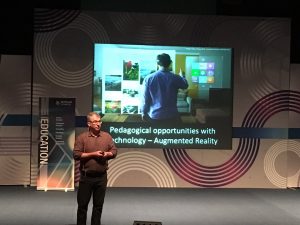
Invited Presentations:
Thought Leadership. Global Leaders Thought Network, Monash University, September, 2018.
Should schools be a breakwater against the tide of educational technologies? Opening keynote presentation, Monash Education Showcase Week. August 2018
PCK training for Master Teachers. Singapore Ministry of Education. December 2017
Faculty of Medicine, Nursing and Health Sciences, Monash University. “Video feedback – targeted and personal”. October 2017.
ANPS Leadership Forum, Bogor, Indonesia. From good schools to great schools: What their Principals do well. October 2017.
Bahagian Teknologi Pendidikan, Kuala Lumpur, Malaysia: Digital Education Workshop. September 2017
Society for Information Technology and Teacher Education: The Development of Technological Pedagogical Content Knowledge (TPACK). March 2017.
Society for Information Technology and Teacher Education: The Technological Pedagogical Content Knowledge (TPACK) Framework: Lineages of the First Ten Years of Research. March 2017
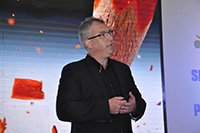
The International Schools of Sri Lanka: Annual Conference “Spotlight on Powerful Technological Pedagogical and Content Practices in Schools”. November, 2016.
Monash Business School: “Video feedback for student assessment tasks”. October, 2017.
World Science Festival: “Augmented reality and the future of Science Education”. March, 2016.
National Institute of Education, Singapore: Ethics in Social Media: Do we really know what we are doing? September 2015.
Faculty of Law, Monash University: Good teaching and effective feedback. August 2015.
Rowville Secondary College: “Video feedback: Providing continuous feedback for students and families”. August 2015
Monash Faculty of Medicine, Nursing and Health Sciences: “Exploring questions that matter in assessment: Providing meaningful multimedia feedback.” July 2015
CRADLE, Deakin University: “Scarily personal: assessment feedback via video, audio, and screencast technologies“. May 2015
Deakin University School of Exercise and Nutrition Sciences: Effective Video Feedback. February, 2015
University of Sydney Faculties of Business, IT and Engineering: Understanding effective video feedback. February 2015
Avila College: Augmented reality and design thinking: Looking to the future. December 2014.
Monash University Faculty of Education Teaching and Learning Seminar: Through the looking glass and what you might find there: Augmented Reality and Education. May 2014.
Monash Educational Excellence Research Group: Video Feedback. 2013
Monash Gippsland Faculty Day: Video Feedback. 2013
Monash Faculty of Education – Innovation series: Video Feedback. 2012
Michael has continued to explore his passion for teaching and learning working in a range of undergraduate and postgraduate courses within the Faculty of Education at Monash University. A number of these course and units are related to issues of ICTE in different educational contexts (EDF5145, EDF5146, EDF5648) as well as general teacher education units including EDF4120, EDF5016, EDF5041, EDF5139.
Michael’s teaching was recognised in 2014 by the Pro-Vice Chancellor (Learning and Teaching), Professor Darrell Evans, who described Michael’s teaching as “outstanding” and was quantified as being in the top 5.6% of teaching evaluations in the University with 149 out of 150 students rating Michael’s ‘overall teaching’ as ‘good’ and ‘outstanding’ reported as part of the University’s formal student survey (source: Monash University Teaching Evaluation Reports 2013-2014).
Subsequently, Michael has won the Dean’s Award for Excellence in Teaching (2015) and the Monash Postgraduate Association Lecturer of the Year Award (2016).
2016 MPA Lecturer of the Year Winner
Dr Michael Phillips from the Faculty of Education, has been named the 2016 MPA Lecturer of the Year! This annual award inaugurated in 2012, aims to acknowledge lecturers who have been a major inspiration to coursework postgrads during their time at Monash.
Dr Phillips was nominated by Jacinta Malborough, a postgraduate he taught in the first semester of 2016. In a heartfelt speech, Jacinta said if it wasn’t for Dr Phillips’ support, she wouldn’t have made it through the semester, let alone the course.
Jacinta described Michael as well organised, skilled at bringing tutorials to life and someone who often went above and beyond the call of duty. The MPA committee and staff congratulate Dr Phillips and thank Jacinta for her wonderful nomination.
Michael is willing to discuss higher degree by research supervisions including PhD in the following areas:
- exploring the social processes that influence the contexts in which teachers’ work,
- the negotiation involving digital technologies in workplace settings,
- the influence of digital technologies, particularly augmented reality, on out-of-classroom learning experiences,
- the legal risks teenagers face when using social networking sites,
- teaching and learning in virtual worlds,
- augmented reality in out-of-classroom settings;
- the affordances of video feedback for teachers and students
Please email Michael (michael.phillips@monash.edu) to arrange a meeting. In your initial email, please include a full CV, a detailed outline of your proposal and copies of any past publications.
Media Appearances:
Bolton, R. (17 April, 2020). COVID-19 speeds up the reform agenda. The Australian Financial Review.
Duggan, S. (14 April, 2020). Don’t rob teachers of their professional agency. Education HQ
Bolton, R. (9 April, 2020). A lesson in living and learning. The Australian Financial Review
Poppy and Leigh for Breakfast – Triple M Wagga (24 March, 2020). Teaching your kids from home.
Webb, C. (2 February, 2019).‘Ruffy’ in a class of his own. The Age.
Urban, R. (12 December, 2018). Youth digital literacy declining, says ICT report. The Australian.
A different lens (September, 2018). Professions of the future
ABC Local Radio (25 August, 2017). Interview with Wendy Harmer. Virtual language schools in New South Wales.
Livefm Breakfast (18 January 2017). Augmented and virtual reality in schools.
The Conversation (11 January, 2017). How virtual reality technology is changing the way students learn.
The Conversation (19 November, 2016). ICT is failing in schools – here’s why
The World Today – ABC Radio (17 November 2015). Digital literacy ‘substantially declining’ in Australian students.
Jacks, T. (17 November 2015). Texting isn’t enough: Australian students’ computer skills drop, new report shows. The Age, p. 11.
ABC Local Radio Melbourne (14 October 2015). Interview with Red Symons regarding Augmented Reality in the Royal Botanic Gardens Melbourne.
Jacks, T. (23 August, 2015). Virtual reality: How Oculus Rift could change the way students learn. The Age, p.5.
Ross, J. (15 April, 2015). Augmented Reality makes everyday life a classroom. The Australian, p.32
Maiolo, A. (4 February, 2015). 2015’s popular tech trends. Education Review.
American Education Research Association (3 February 2015). Members in the news. Retrieved from: http://www.aera.net/Newsroom/AERAintheNews/MembersintheNews/tabid/15339/…
ABC Local Radio Melbourne (28 January 2015). Interview with Richard Stubbs regarding the future of digital technologies in schools.
Norwegian University of Science and Technology (27 January 2015) Movies feedback: Teachers at Australian university give each student feedback in the form of film clips. Retrieved from:
http://www.universitetsavisa.no/forskning/article46875.ece.
ABC Local Radio North Queensland (27 January 2015). Interview with Paula Tapiolas regarding the future of digital technologies in schools.
ABC Local Radio South East New South Wales (27 January 2015). Interview with Tim Holt regarding the future of digital technologies in schools.
Kolowich, S. (26 January, 2015). Could video feedback replace the red pen? The Chronicle of Higher Education.
Maiolo, A. (19 January, 2015). Video gives valuable feedback. Campus Review.
Maiolo, A. (19 January, 2015). Video gives valuable feedback. Education Review.
Ross, J. (14 January, 2015). Video critiques work for students and teachers. The Australian p.28.
Hosking, W. (25 April, 2014). Visionary feedback: Teachers ‘mark’ essays with videos to students. Herald Sun p.18.
Today’s Schools (27 March 2014) Video feedback at Monash University.
Munro, P. (20 March, 2011). Teens ‘too blasé’ about online legal dangers, The Sunday Age, p.3.
Henderson, M., Phillips, M. (2011), Online – the front line. Leader Associated newspapers Pty Ltd, Melbourne Australia, pp. 6
Michael provides expert opinion and reviews research articles for:
- American Educational Research Journal
- Australasian Journal of Educational Technology
- British Journal of Educational Technology
- Contemporary Issues in Technology and Teacher Education
- Australian Educational Computing (Section Editor)
- Environmental Education Research
- and as Lead Editor for the DLTV Journal
5 things to think about before introducing technology in your classroom
1. Why just using robots in the classroom doesn’t work
Knowing your students is a vital part of integrating technology into your classroom. You just can’t set and forget.
Just because a digital tool works well for one group of Year 7 students, doesn’t guarantee success for another group. Equally, just because the use of a digital tool worked in Period 2 on Monday doesn’t mean it will be as effective in Period 7 on Friday with the same group of students.
Technology cannot simply be transplanted from one classroom to another. Teaching is a people business, after all.
2. Understand the content and purpose of your lesson
Content needs to come before technology. Do it the other way, and you can ruin your lesson.
Imagine the purpose of your lesson is to develop synthesis skills and teach students to draw themes and ideas from a large amount of information.
There are digital tools that are great at this. TagCrowd creates a word cloud from sections of text. The more common the word, the larger its size. It’s quick and easy to see the themes, visually. However, with the click of the button, the app is doing the work, not the student.
Research into visual learning aids also shows technology, when not used well, can reinforce misconceptions in students, and create challenging content problems for teachers. Use with caution.

With the click of the button, the app is doing the work, not the student.
3. Consider the relationship between teaching, learning and technology
Teaching is not simply telling. Learning is not simply listening. The two exist in a symbiotic relationship. It’s vital to understand this relationship — or pedagogy — when considering which educational technologies might work in your classroom.
It’s not about representing the content or making things easier for the teacher. When it comes to technology, there needs to be a mutually beneficial relationship for teachers and students.
When that happens, digital technology becomes effectively integrated in the classroom. That’s where the magic happens.
4. Understand your school context, and know you can influence it
Appreciating the context where you work is pivotal in shaping how you use technology in your classroom. The expectations of school leaders, the ideals of parents and caregivers, the capacity of your colleagues and the values you wish to impart are all a part of this context.
But my research has shown it’s not a one-way street – teachers and their teaching are not always shaped by the school context. Teachers and their activities with technology can influence their school context, and with that, create change.
5. A new framework to use when introducing technology into your classroom
After considering students, content, pedagogy and context you are well placed to make a thoughtful decision about using technology.
Punya Mishra and Matthew Koehler have developed a framework called TPACK to show how technology can be effectively integrated in the classroom.
It represents the combination of Technological Pedagogical And Content knowledge and is represented by this Venn diagram.

At the same time, you can also reconsider how you use things — pens, whiteboards and post-it notes — that we no longer consider as technology. These basic tools have great qualities that may be far more effective to teach particular content to particular students at a particular time for a particular purpose.
After all, isn’t that what we should be striving to do as teachers?
References
Eilks, I., Witteck, T., & Pietzner, V. (2009). A critical discussion of the efficacy of using visual learning aids from the internet to promote understanding, illustrated with examples explaining the daniell voltaic cell. EURASIA Journal of Mathematics, Science & Technology Education, 5(2), 145-152
Phillips, M., Koehler, M. & Rosenberg, J. (2016). Looking outside the circles: Considering the contexts influencing TPACK development and enactment. Paper presented at Society for Information Technologies in Education Conference, Savannah, Georgia, USA p. 2779 – 2786
Banister, S., & Reinhart, R. V. (2011). TPCK for impact: Classroom teaching practices that promote social justice and narrow the digital divide in an urban middle school. Computers in the Schools, 28(1), 5-26.


